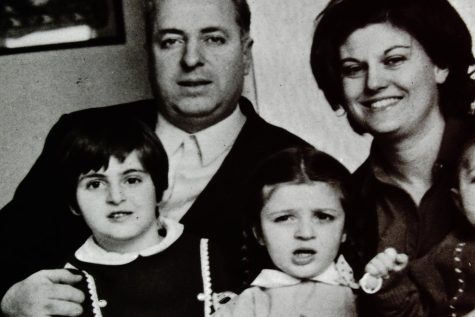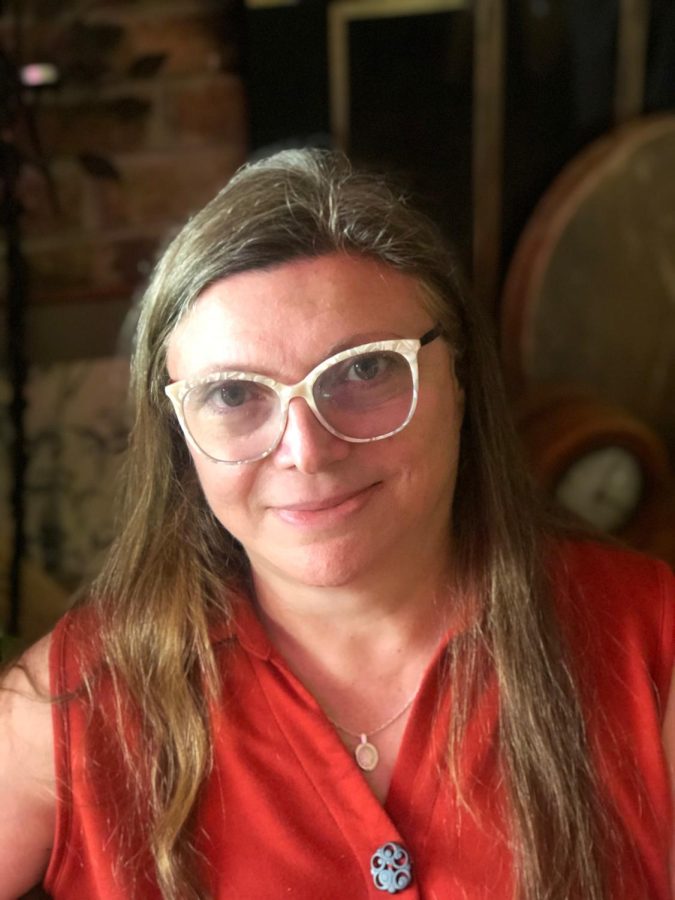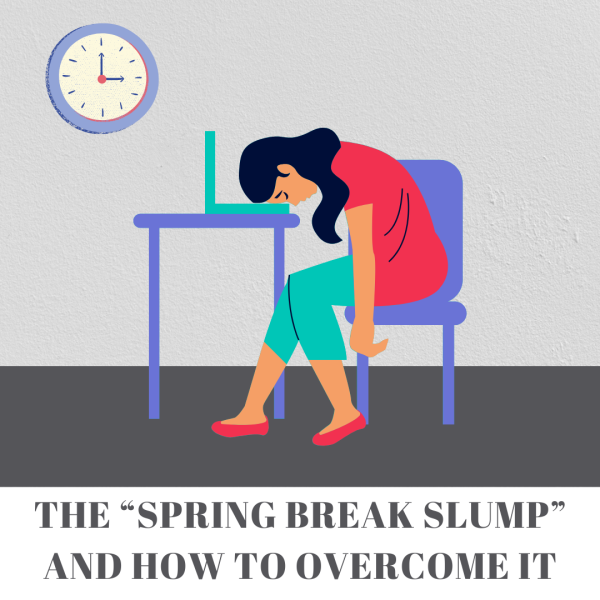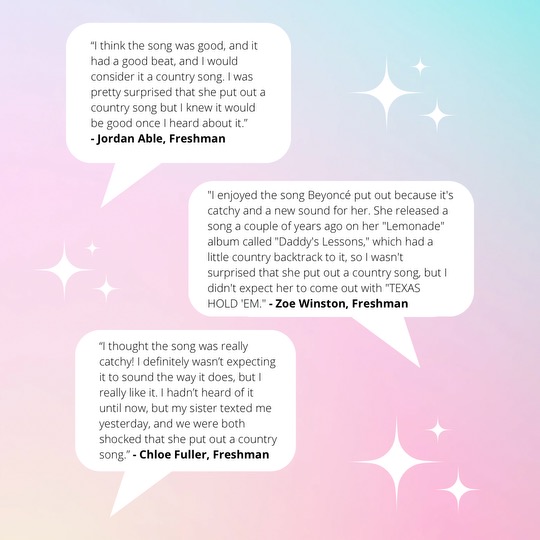Laura Valeri: From Italian Immigrant to Award-Winning Author and Writing Professor
March 3, 2022
In 1978, Italy was in chaos following the kidnapping and brutal murder of Prime Minister, Aldo Moro, by Red Brigade terrorists. Riots, violence and school closures led Valerio Valeri, a consultant for the pharmaceutical industry in Milan, to seek a new life for his family.
Landing a job as an international consultant for Pfizer in New York City, he hoped to bring luck to his family by immigrating to the United States on Sep. 24—his daughter Laura’s twelfth birthday.
Laura Valeri was born in a small town in Tuscany, Italy—home to the Italian Renaissance, beautiful fields of green, and the “crispy, baguette-like bread” Valeri would grow to miss.
However, on the day of her twelfth birthday, Laura Valeri’s entire life changed. She woke up living in Italy and went to bed as a New York resident, marking a night she will never forget.
Valeri celebrated with her family that evening at an Italian restaurant named Pronto. When interviewing Valeri on Zoom, her eyes lit up behind her wide-framed glasses as she joked, “the spaghetti tasted like it had been made with ketchup.” However, food wasn’t the most difficult change.
 When she first moved to New York, Laura Valeri did not speak English. When I asked how she adjusted, she said, “That was a really long struggle for me.”
When she first moved to New York, Laura Valeri did not speak English. When I asked how she adjusted, she said, “That was a really long struggle for me.”
Valeri detailed how her brother and sister picked up on the language much faster, and she felt alone—unable to communicate with others.
So, how did Laura Valeri go from an Italian immigrant who couldn’t speak English to an award-winning author, writing professor and master communicator?
When speaking to Laura Valeri, her mastery of English appeared clear beyond proper pronunciation and grammar. She narrates as if reading directly from one of her story collections.
Plus, her words resonate naturally which is why I was surprised to discover she considers herself shy. Though her careful choice in wording is apparent, Valeri’s outward confidence outweighs her inward shyness.
However, Laura Valeri revealed how—despite her clear understanding—she still encountered many situations where her work was judged because of her accent. A publishing agent may love the writing sample online, but “the minute I start talking… they find a bunch of faults,” she sighed.
Unlike in Italy, where she explained foreigners are often helped, Americans were not very welcoming to Valeri. “When you don’t speak a language, people in the United States look at you very suspiciously,” she disclosed when detailing her initial struggles.
“I would not be able to even just make a joke to make somebody like me… because I couldn’t think of the first translation fast enough,” Valeri told me in our interview about her initial move.
Though she and her siblings enrolled in an Italian school in New York City, Valeri recalled most of her peers as American-raised students who spoke English as their first language.
“Not being able to speak the language really made me aware of the importance of language… I felt so powerless in every situation.” Valeri’s recognition of the significance of communication became the inciting incident leading to her passion for language.
To prove herself, Valeri felt pressured to “speak English well enough to be able to teach [the language] to others someday.” This pressure led to her lifestyle and career.
From teaching to writing, Valeri’s entire life demands high levels of respect and understanding of both language and communication from her. “What is there outside of writing?” Valeri exclaimed with a laugh during our Zoom meeting.
By day, she is a professor of creative writing. By night, she authors a range of fiction and creative nonfiction works.
However, Valeri is bound by no one genre or niche. She authored two short story collections, one short story cycle and a book of essays. Her debut book was a fictional short story collection, The Kind of Things Saints Do, which later won the Iowa Short Fiction Award. Then, she wrote her next two fictional works: Safe in Your Head and The Dead Still Here.
Valeri’s most recent publication, After Life as a Human, contains seven nonfiction essays about the destruction of Florida’s forgotten natural beauty—Dog Island. The translation, L’Isola del Silenzio, is her Italian debut.
“I also write a lot of articles on writing pedagogy, literature, reviews and… I dabble in screenwriting and other things like poetry,” Valeri listed. Some of her work appears in College Composition & Communications, Creative Writing Pedagogy and Writing & Pedagogy.
Other online and print journals—such as South85 Journal, Conjunction and Glimmer Train—are home to additional essays, short stories and translations of hers.
Laura Valeri is trilingual—fluent in Italian, English and Spanish. Her translations include articles, short stories, poems and other works.
Georgia Southern University gained Laura Valeri as a professor within the Writing & Linguistics department in 2003, where she still works today. She teaches a variety of introductory and advanced writing courses including fiction, screenwriting, creative writing and creativity for writers. Her academic interests also involve nonfiction and memoir writing, comparative religion and mythology.
I first met Laura Valeri in the classroom as a student in her Fiction Writing class. Despite being a writing major, my confidence in my ability as a writer was at an all-time low.
I wasn’t the child I once was who spent countless hours creating story after story—plus an embarrassing fanfiction or two—but a person who only wrote for class.
Laura Valeri made me believe I, too, could publish my creative works. Through feedback I received in her class, I realized I have the potential to make others feel emotions using only my words.
“As a reader, I really feel the passion in every line, and your passion makes me passionate. It’s really strong writing,” she commented.
Suddenly, the importance of language and communication was clear in a new way. When I asked in our interview how she distinguishes good writing, Valeri identified a few key qualities she recognizes.
First, Valeri notes good writers must be honest, not just with others but with themselves. “We all tell lies to ourselves because we want to make our lives easier, and I think the hardest part about writing well is to be able to peel away all of the layers of self-deception,” she observed.
From this honesty forms the wisdom and compassion “to be able to understand multiple ways of living—multiple ways of processing a situation,” Valeri noted. Writers have both awareness of, and empathy, for other people.
To quote Laura Valeri’s first mentor, John Dufresne, “[in order] to be a better writer, [you must] be a better person.” Valeri passed along this quote to explain a writer’s duty, no matter what they are writing or to whom, to write with honesty and compassion.
However, when referring to students in her class, Valeri clarified, “When I read a piece of writing and that person can make me believe that I’m in that world and I really understand the people that are in there… then I know that writer has talent.”
Valeri’s advice for aspiring writers is to “have the right expectations about writing.” She says before pursuing a career in writing, individuals first must define what career they want specifically and why.
Working in writing is a difficult job. “There are always people who read your work and don’t get it or don’t connect with it in the way that you hoped they would,” she revealed. The criticisms can be harsh and discouraging.
However, if writing is calling you, Valeri says you have a moral obligation to answer. “If you have a passion for this, you should do it,” Valeri affirmed.
She explained how, “Every one of us has a different way of processing reality, a different way of seeing things, and writing is a way in which we share that. Don’t let anyone take that away from you.”
Currently, Laura Valeri is dabbling in multiple projects herself. While Valeri has two outlined novels and two screenplays, she is actively writing an essay and several short stories.
Valeri was also recently contacted by a library owner in Italy regarding the works of a great-great-uncle of hers, Diego Valeri—a well-known poet in Italy. She is working on translations and biographical pieces, connecting her work to her uncle’s poetry.
Currently, four poems translated by Valeri can be found in the January issue of online art and literary magazine, the Bangalore Review.
Laura Valeri’s goal is simple: “I would like to feel like I helped someone or helped people express themselves, but more than that, to have done something that makes this place a better world to live in,” she expressed.
She hopes her readers and students “get a little bit of that experience of stepping into somebody else’s shoes and gaining empathy and compassion for other people.”
After getting to know Valeri as an educator and mentor, I, myself, and my classmates can confirm she has positively affected the lives of many. Laura Valeri’s life is proof, to herself and everyone else, of both the importance of language and communication, and her ability to master them.
To contact Laura Valeri, visit her website: LauraValeri.com.








